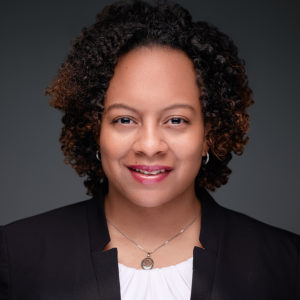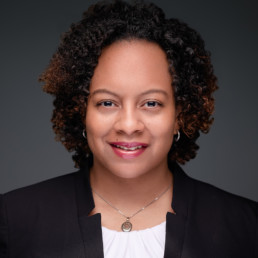Blog Post On 17th Annual IIPSJ CLE Conference
17th Annual IP & Social Justice CLE Seminar

by Tashia Bunch, CLE Co-Chair
Thank you to all that participated in the 17th annual IP and Social Justice CLE program. Our program is the longest running IP and social justice CLE program in the country. We work hard to start conversations surrounding diversity in IP and to help ensure these conversations continue to take place. And our conversations aren’t just theoretical, we focus on real world solutions for increasing awareness of social justice issues and diversity in the field of IP. We focus on diversity in several ways; diversity of our CLE panelists, diversity of attendees, and discussions of how IP ownership impacts diverse communities.
Diversity of our CLE panelists: Every year we feature Howard Law alumni on our panels and we attempt to include someone from a minority group on every panel. This year all but two sessions included a minority speaker.
Diversity of attendees: Each year we attract a highly diverse audience to attend our program. This year, the program was held at Howard University School of Law attracting students and alum of the prestigious HBCU (Historically Black Colleges and Universities). Additionally, we offer a discounted rate for alumni of Howard Law and next year we expect to expand that discount to attendees that are alumni of any HBCU in the nation.
Discussions of impact of IP on diverse communities: Every year, we ask all of our speakers to be sure that they discuss the social justice implications of the topic they are covering at our program. We also host a social justice luncheon which annually features one or two discussions of IP rights and social justice.
This year, we had sessions featuring discussions on ways to increase diversity in the IP bar, including federal judges offering career and practice tips to Howard Law students in attendance to increase the pipeline into the profession to in house counsel discussing ways to increase diversity and inclusion at their own companies and within the law firms they work with.
This year’s social justice luncheon featured two topics. The first was a discussion of the recently passed California Pay to Play Act and the fairness of allowing student athletes to be compensated for use of their name, image, or likeness and what this law and others like it that are being circulated in state legislatures around the country could mean for student athletes. The second panel “Remembering Invention of a Slave: Patents and the Continuing Struggle for Civil Rights” discussed inventorship and the struggle to acquire patents in the African American community.
If you weren’t able to attend this year, you missed a day of lively and engaging discussions. We hope that you will consider joining us next year. Thanks to one of our sponsors, Microsoft, we were able to record several of the CLE sessions this year. We plan to share some of these videos with you throughout the year to encourage you all to engage in these conversations.
Please save the date for next year’s conference – Friday, March 5, 2021

Tashia is a 2006 graduate of Howard University School of Law, which is how she first learned about IIPSJ. She currently works as a Legal Policy Attorney in the Office of the Deputy Commissioner for Trademark Examination Policy at the United States Patent and Trademark Office (USPTO). Previous positions at the USPTO included serving as the Acting Trademarks Chief of Staff and as a trademark examining attorney.
Fair Pay to Play Act
The California Fair Pay to Play Act- Finally IP Social Justice for Student Athletes
Earlier this month Governor Gavin Newsom signed into law the Fair Pay to Play Act, the nation’s first law to override the NCCA’s prohibition which prevents student athletes from commercially exploiting their IP and related legal rights. See California Law Takes Paying College Athletes Out of the NCAA's hands. The NCAA maintains its rule notwithstanding the fact that the NCAA requires student athletes to permit the NCAA to exploit those very same rights to obtain millions in revenues every year.
For years, some legal scholars (see e.g. Lateef Mtima, What's Mine Is Mine but What's Yours Is Ours: IP Imperialism, the Right of Publicity, and Intellectual Property Social Justice in the Digital Information Age) and many social activists have urged that the NCAA rules allowed the grossly unfair exploitation of student athletes, many of whom hail from marginalized, working class, and rural communities, and for whom the college athletic scholarship system provides the only opportunity to obtain a college education. Although at one point it seemed that the courts were willing to curtail NCAA rules and allow students to protect their IP rights from unfair exploitation, this progressive wave came to a halt when the United States Court of Appeals for the Ninth Circuit overturned a California District Court ruling that the NCAA prohibition violates the federal antitrust laws. Instead, the Court of Appeals declared that the NCAA rule satisfies the antitrust “rule of reason” doctrine, which effectively permits an antitrust violation where the social benefits outweigh the social harms (raising the question as to whose “benefits” count and whose “harms” don’t.)
Under the new law, college athletes in California will be permitted to accept commercial endorsements and hire agents beginning in 2023. Hopefully the Fair Pay to Play Act will inspire similar legislation in other states, and finally allow all student athletes to share in the millions of dollars of commercial revenues they generate every year.
We will continue this important conversation during our annual CLE program.
